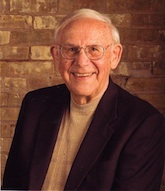Darold Treffert, M.D., a Wisconsin psychiatrist, has been studying Savant Syndrome for over 40 years. His most recent publication, Islands of Genius: The Bountiful Mind of the Autistic, Acquired and Sudden Savant, was published by Jessica Kingsley, Inc. in April 2010 in both the United States and England. His earlier book, Extraordinary People, was the first work to comprehensively summarize what is known about this fascinating condition, originally described a century ago, and to introduce the reader to a number of present day prodigious savants such as Leslie, Alonzo and George. Many persons remember these three remarkable persons from the 1980 60 Minutes program about them. Dr. Treffert was also a consultant to the movie Rain Man, in which Dustin Hoffman portrayed an autistic savant. In addition to his work in the area of Savant Syndrome, Dr. Treffert has lectured nationally for a number of years on the topic of “Mellowing”. His booklet, Mellowing: Lessons from Listening, has been widely distributed. Another area of writing and speaking has been the rights of the mentally ill with respect to balancing clinical realities with legal rights.
Discover these discount codes for you!: Angie’s List and 10% off on printer ink at 4inkjets and 10% off on Shoes and other apparel at ShoeBuy.com.
A psychology podcast by David Van Nuys, Ph.D.
Podcast: Play in new window | Download
Subscribe: Apple Podcasts | RSS

After listening to the interview with Dr Treffert, we seem to know as little about the savant phenomeon as we know about the accounts of individuals remembering past lives, many of which have been documented by the late Ian Stevenson
It is difficult to imagine that an individual’s savant capability in calculating, memory, art or music is inherent or dormant in the confines of a living being. However, if such is the case, then think of all the unused mental capacity each one of us has!!
Dr Traffert discussed that an individual with a savant capability may have a relative or ancestor with a high, although not savant, level of skill in a similar area. I have found (anecdotally) that individuals with inordinate psychic or intuitive skills often have a parent or sibling with similar skills.
The discussion of savant creativiy is not so surprising. Most people can learn to draw or to play a musical instrument competently after several years of practice. I suspect that the intermittent spike in skills such persons periodically experience is the result of some internal syntheis or creation from what the person had already mastered. The savants described by Dr Treffert are just starting with a deeper and larger knowledge base.
That savants can get bored with some activity is no different from any person losing interest in a hobby or activity.
My current view/opinion is that the structures of the brain is a filter or buffer from all the spirits and knowledge which exists in some collective consciousness and higher planes of existence, and for reasons still unknown to us humans, these spirits/knowledge get through to a small number of persons who either (1) have brains appropriately configured via genetics or injury or even training (e.g. years of meditation), or (2) have been invaded or influenced by one or more very persistent or capable spirits. So thus we have savants, psychics, those who remember past lives, and schizophrenics. Much of what we dream undoubtedly comes from these unkown realms. I also suspect that “normal” humans can train themselves to reach these realms (1) by learning lucid dreaming, astral projection, or meditation, or (2) through past life hypnotic regression.